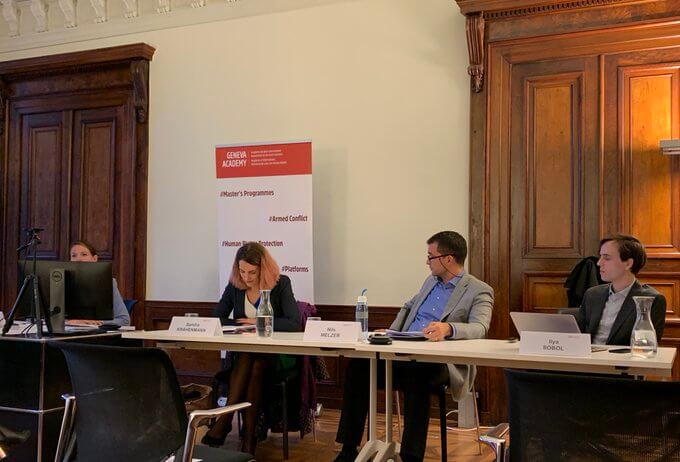
An exemption for humanitarian activities in the new Swiss counter-terrorism law: A much-needed safeguard and a welcome step protecting the humanitarian space
6 October 2020
In order to address the threat of terrorism more effectively, many countries have recently adopted new, often wide-ranging, counter-terrorism measures and laws. Against this backdrop, and amid insistent calls for a coordinated fight against terrorism and strengthened legal framework, Switzerland adopted on 25 September 2020 two new counter-terrorism laws.
In addition to the new law on police measures, providing for a series of controversial administrative measures, the second law established new terrorism-related offences. During the drafting and parliamentary debates of the bill with the new terrorism-related offences, humanitarian organisations raised concerns that this bill might criminalize humanitarian activities if no explicit exemption was added.
In particular, the bill included the offence of support to terrorist organisations. The notion of support may include essential humanitarian activities, such as the provision of medical care, demining or the engagement of armed groups to improve the protection of civilians. Without an explicit exemption for humanitarian services, humanitarian workers could have been prosecuted for carrying out their essential humanitarian activities, in particular in areas controlled by armed non-state actors that are also designated terrorist groups. Moreover, such support-related offences risk undermining the humanitarian principles of impartiality and neutrality.
In light of these concerns, Geneva Call, as well as other Swiss-based humanitarian organizations such as MSF, the Swiss Red Cross and Terre des Hommes, and International Humanitarian Law experts, advocated for the inclusion of an explicit exemption for humanitarian activities throughout the drafting process of the bill. We welcome the decision of the Swiss parliament taken on 25 September to include such an exemption for humanitarian services carried out on the basis of Common Article 3 of the Geneva Conventions.
This decision is not only a much-needed safeguard, but also a very welcome step that protects the humanitarian space and reaffirms the necessity and legitimacy of humanitarian activities. It is particularly important in light of the proliferation of new counter-terrorism measures across the globe. We urge other States to follow the example of Switzerland, the depositary of the Geneva Conventions, and to take measures to address the impact of counter-terrorism measures on humanitarian action.
